
Front_Office_Operations
.pdf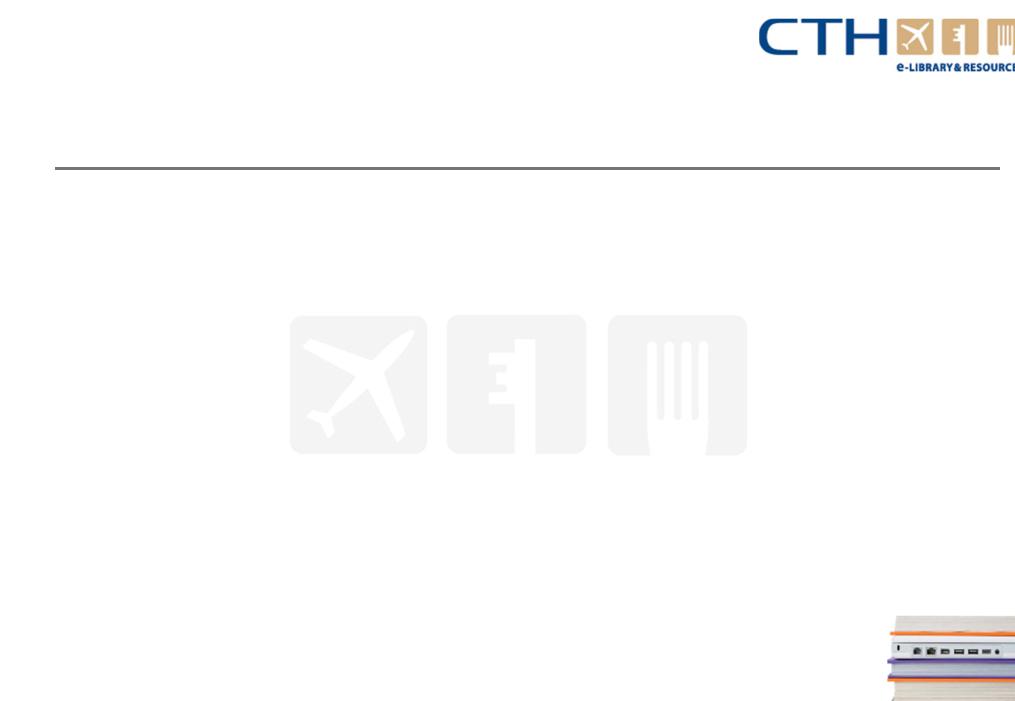
Chapter 4 – Check-out procedures
Preparing and presenting guest bills
2.3 Agency (commissionable) bookings
Reservations made by travel agents and hotel booking agents (including online booking agencies) are normally made on the basis that the agent will earn a commission (percentage) payment on the room rate, as its 'reward' for making the sale on the hotel's behalf.
Commissionable bookings should be noted in the remarks column of the bookings diary, or in the computer reservation form, so that when the guest checks-in, their account can be marked as commissionable. Two separate accounts (or a split folio) may need to be opened for the guest, so that the commission can be calculated on the accommodation part of the bill only.
If guests are having their main accommodation charges settled by a company or tour organiser, they may also require a split folio: that is, there will be a master account or folio for the room charges (which will be sent to the company) plus a folio for the extras or incidentals, which will be settled by the guest.
www.cthresources.com |
Page 221 |
|
www.cthawards.com |
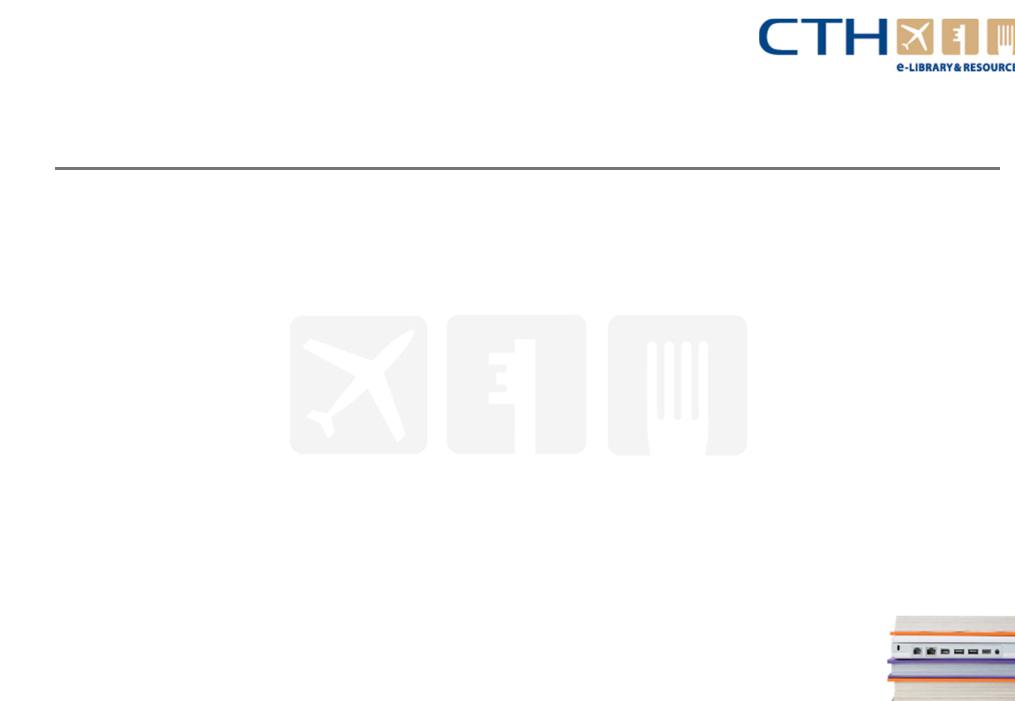
Chapter 4 – Check-out procedures
Preparing and presenting guest bills
2.4 Posting charges
During the guests' stay, extras such as drinks, afternoon tea, newspapers, telephone calls and other items can be added to their accounts.
Information about charges will have to be passed from the departments concerned to the front office, for inclusion on the guest's bill. This is called ‘posting charges’.
●Charges may be recorded automatically. e.g.. by a telephone call logging system, or via an Electronic Point of Sale system (linking the bar or restaurant cash register to the front office billing system).
●They may be pre-agreed with the guest, and signed for at reception on registration (e.g.. a daily charge for newspapers or extra towels).
●They may take the form of reimbursements repayments) of payments made by the hotel on behalf of guests, or 'visitor paid outs' (VPOs). For example, the hotel may have had to pay COD (cash on delivery) for a parcel delivered to a guest by courier, or may have sent someone out to fill a guest's medical prescription.
www.cthresources.com |
Page 222 |
|
www.cthawards.com |
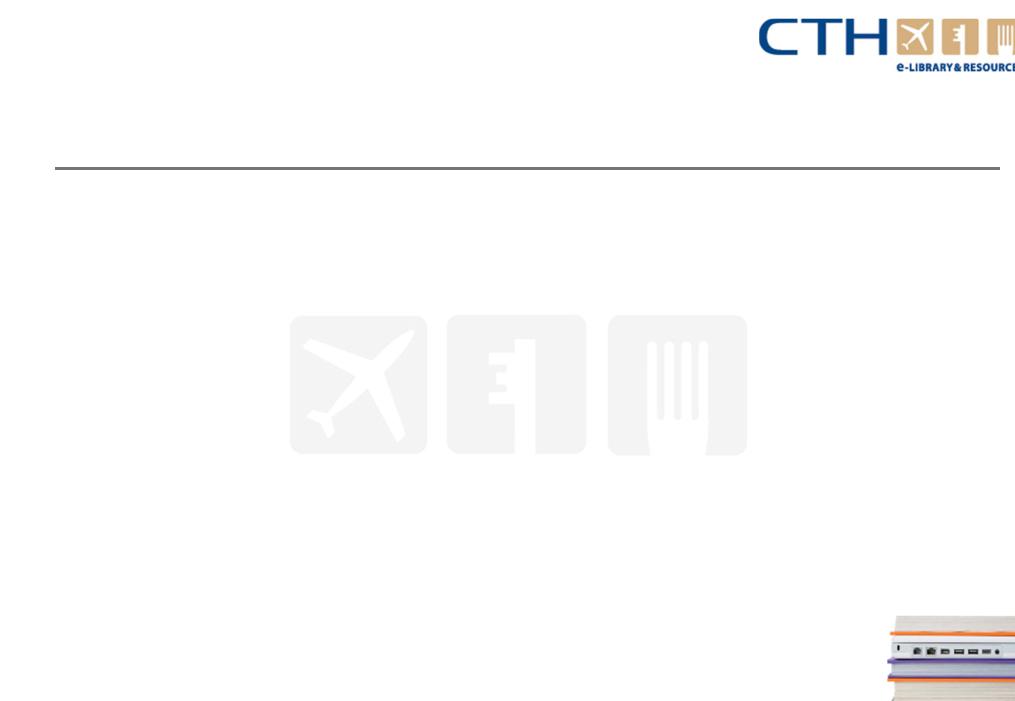
Chapter 4 – Check-out procedures
Preparing and presenting guest bills
2.4 Posting charges continued…
●They may be confirmed by the guest and notified to reception via vouchers or 'chitties', with the name of the guest, room number, date/time, details of the service provided or items purchased, and their cost. Guests will often be required to sign the chitty to confirm their agreement with the charge, prior to sending to the billing section: this is useful in the event of a later dispute (so signed chitties are usually retained in the guest file until departure).
In a manual system, hand-completed chitties may be pre-printed with information headings, to cut down on the amount of filling-in required. They should identify the department in which the charge is made (e.g.. being colour-coded or differently designed for restaurant, room service, housekeeping, concierge and so on). This enables the hotel to analyse the spending of guests on different services, as well as making it easier to follow up guest queries about posted charges. Chitties may also be serially numbered, making queries easier to follow-up.
The system only works if staff in other departments are accurate in filling out vouchers, and efficient in sending them swiftly to front office. This is a particular challenge with charges incurred on the morning of a guest's departure, e.g.. overnight mini-bar expenses and breakfast charges. (This
is why breakfast is often included in the room rate and charged in advance.)
www.cthresources.com |
Page 223 |
|
www.cthawards.com |
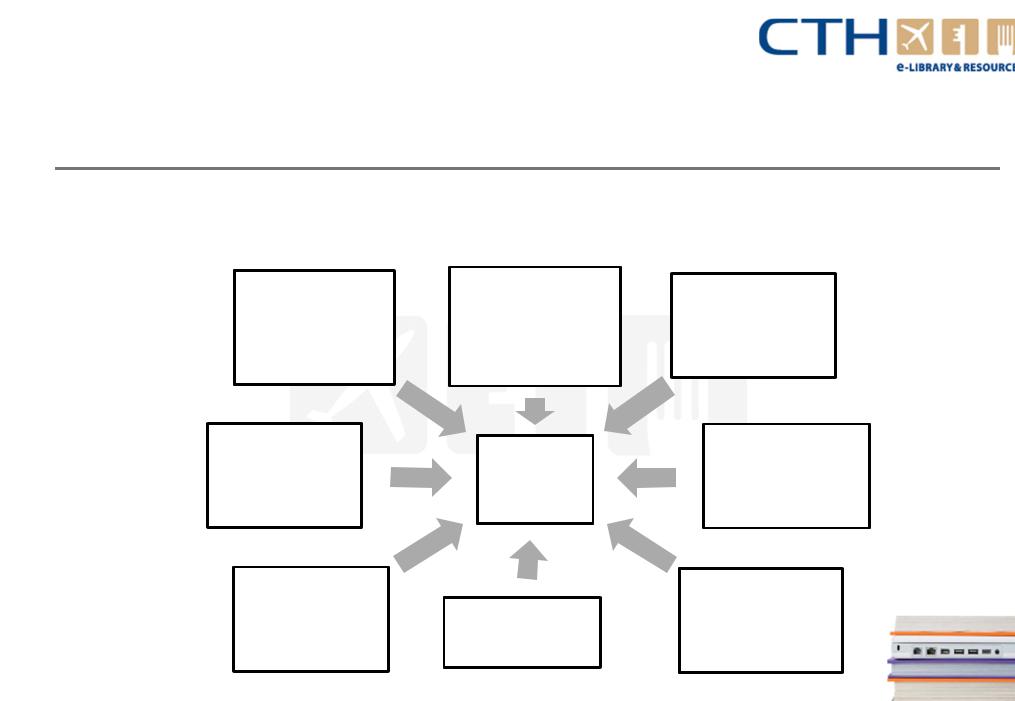
Chapter 4 – Check-out procedures
Preparing and presenting guest bills
The posting of charges is thus an important area in which there needs to be excellent communication between front office and other departments:
Figure 4.1 Sources of charges
Reception
Room/ package charges
Pre payments/ deposits
VAT
Housekeeping
Laundry/ dry cleaning
Extra supplies
Mini-bar usage
Restaurant Meals
Wine/liquor
www.cthresources.com
Switchboard/ business centre
Phone calls
Fax/ e-mail
Secretarial services
Guest accounting/ billing
Bar/ café
Drinks
Snacks
Page 224
www.cthawards.com
Sundries
Newspapers
Sundry purchases
Visitor Pay Outs
Concierge
Garage Tours/ entertainment
Room service
Meals
Drinks
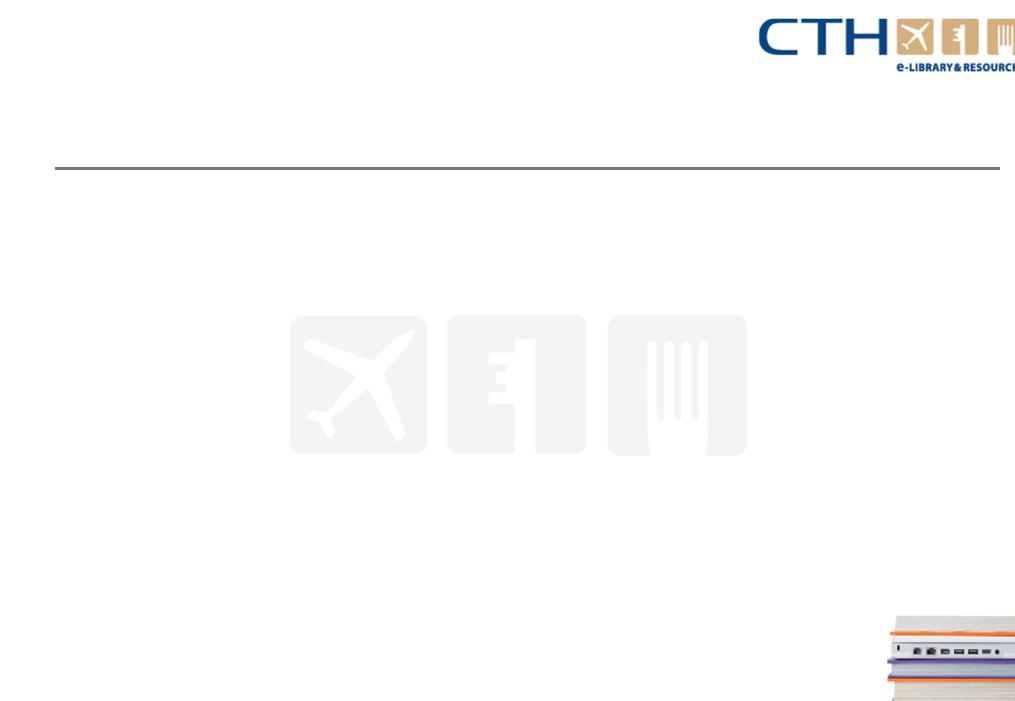
Chapter 4 – Check-out procedures
Preparing and presenting guest bills
2.4 Posting charges continued…
Chitties can also be printed out from cash registers or computerised point-of-sale systems for guests to sign, and in computerised systems, the charge is also automatically transferred to the guest account from the point of sale terminal. Hand-held electronic devices may even be used, with charges displayed and guests signing on-screen. Even if a computerised system is used, however, it is still useful to have a paper print-out with guest signature, in case of subsequent queries.
This allows charges to be posted in batches, making it a relatively quick daily task or a quiet period. It is linked to individual guest accounts (by name and room number), so the system can 'pick' the charges for each guest/room and insert them in the guest account for billing: Figure 4.3.
www.cthresources.com |
Page 225 |
|
www.cthawards.com |
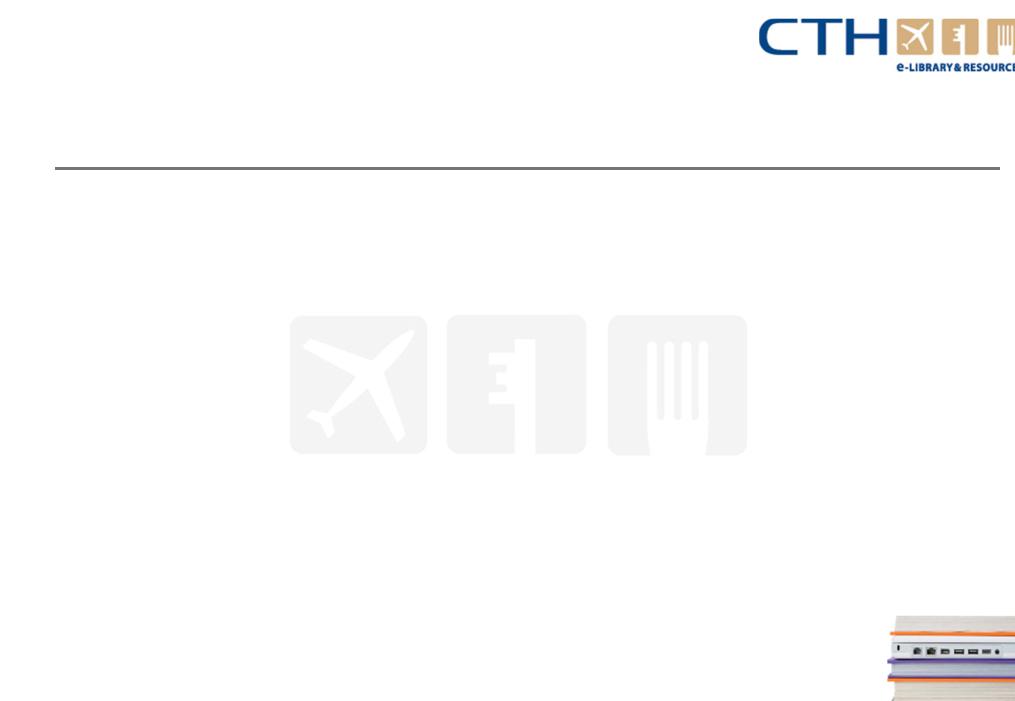
Chapter 4 – Check-out procedures
Preparing and presenting guest bills
2.4 Posting charges continued…
This allows charges to be posted in batches, making it a relatively quick daily task or a quiet period. It is linked to individual guest accounts (by name and room number), so the system can 'pick' the charges for each guest/room and insert them in the guest account for billing:
www.cthresources.com |
Page 226 |
|
www.cthawards.com |
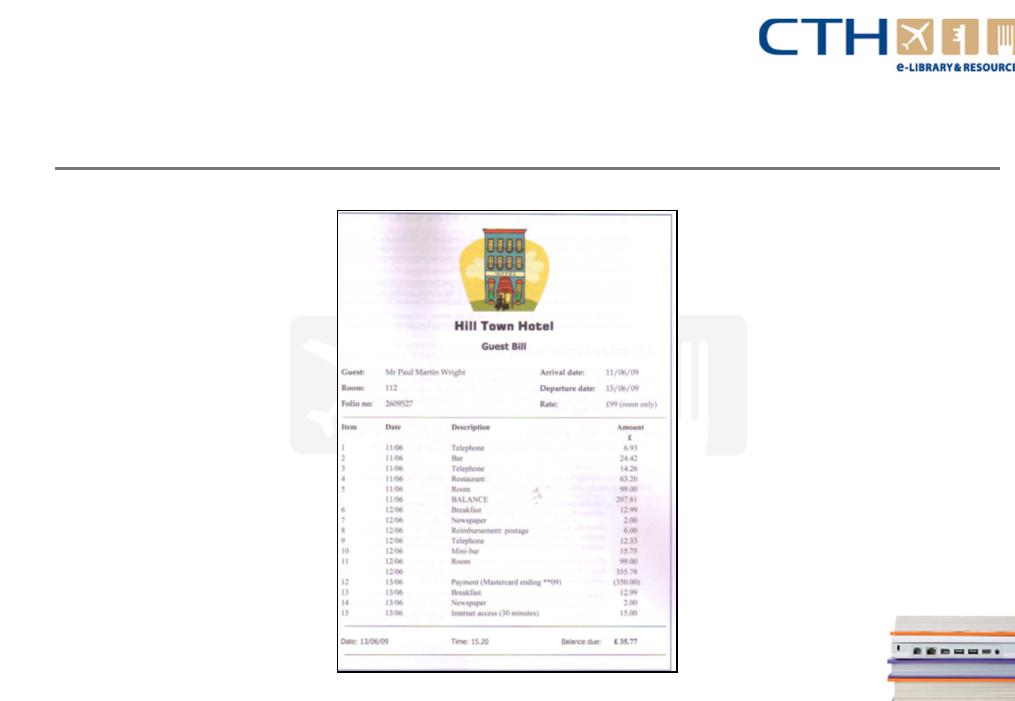
Chapter 4 – Check-out procedures
Preparing and presenting guest bills
Figure 4.4: Standard guest bill or folio
www.cthresources.com |
Page 227 |
|
www.cthawards.com |
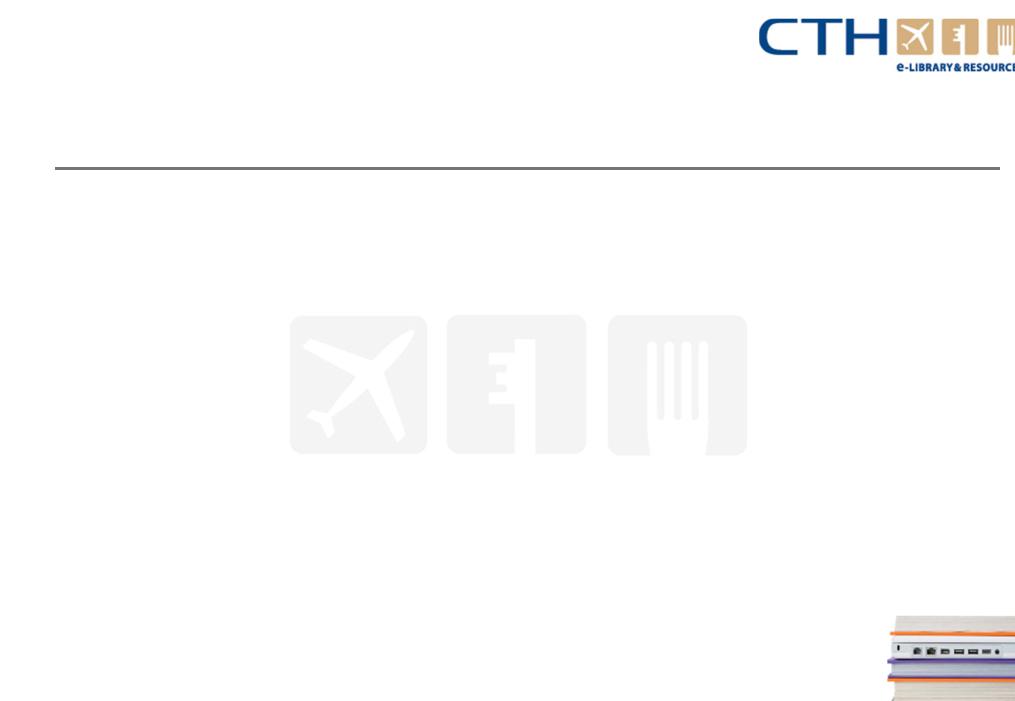
Chapter 4 – Check-out procedures
Preparing and presenting guest bills
2.6 Group billing arrangements
Payment and credit terms for the group (including protocols for handling any payment disputes) will have been agreed in a detailed contract with the tour operator or group organiser at the time of reservation. The operator's credit status will have to be checked before the booking is accepted, since a group account may add up to many thousands of pounds.
The group organiser should have sent a voucher, Itemising the expenses for which it will be responsible, with the final guest/rooming list. A copy of this voucher can then be counter-signed by the tour leader on the group's departure, to confirm that the promised services have been delivered.
The group's account is completed and authorised by the cashier, and sent to the tour operator, together with the vouchers, for payment.
www.cthresources.com |
Page 228 |
|
www.cthawards.com |
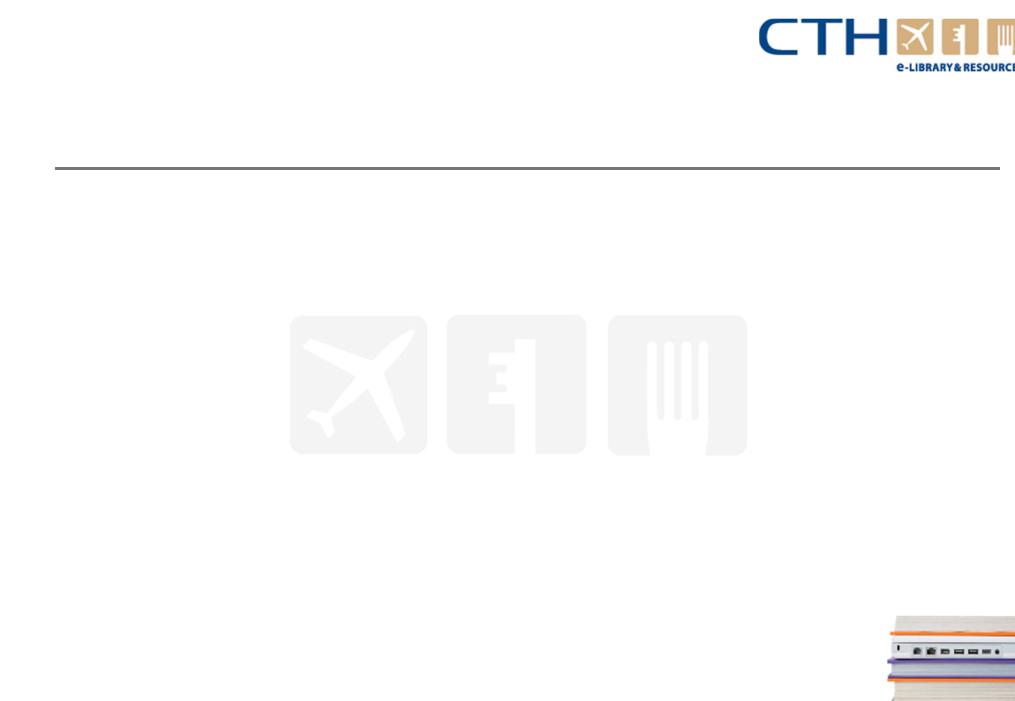
Chapter 4 – Check-out procedures
Preparing and presenting guest bills
2.7 Handling account queries
How you handle a guest query or complaint about a bill is much more important than who is right or wrong! Billing questions and disputes must be handled efficiently and with good humour and understanding - regardless of who is responsible for any error or misunderstanding. If errors are found, apologise clearly and simply (grovelling is not required) and put the matter right.
Good practice for a dispute on check-out might be as follows.
●Take the guest aside, so that the matter can be handled discreetly - and so that other guests can continue their check outs (if other staff are available) without disruption
●Assure the guest that the matter will be immediately looked into, and ask him to wait for a moment while this is done. Reservation documents, chitties and other documents can then be checked for errors, and authorisation for legitimate reductions or adjustments sought.
●If time is short (reception is busy and/or the guest has to leave immediately), the cashier may have - or seek - authorisation simply to alter or delete the disputed charges, to settle the issue
without further conflict which might reflect badly on the hotel.
www.cthresources.com |
Page 229 |
|
www.cthawards.com |
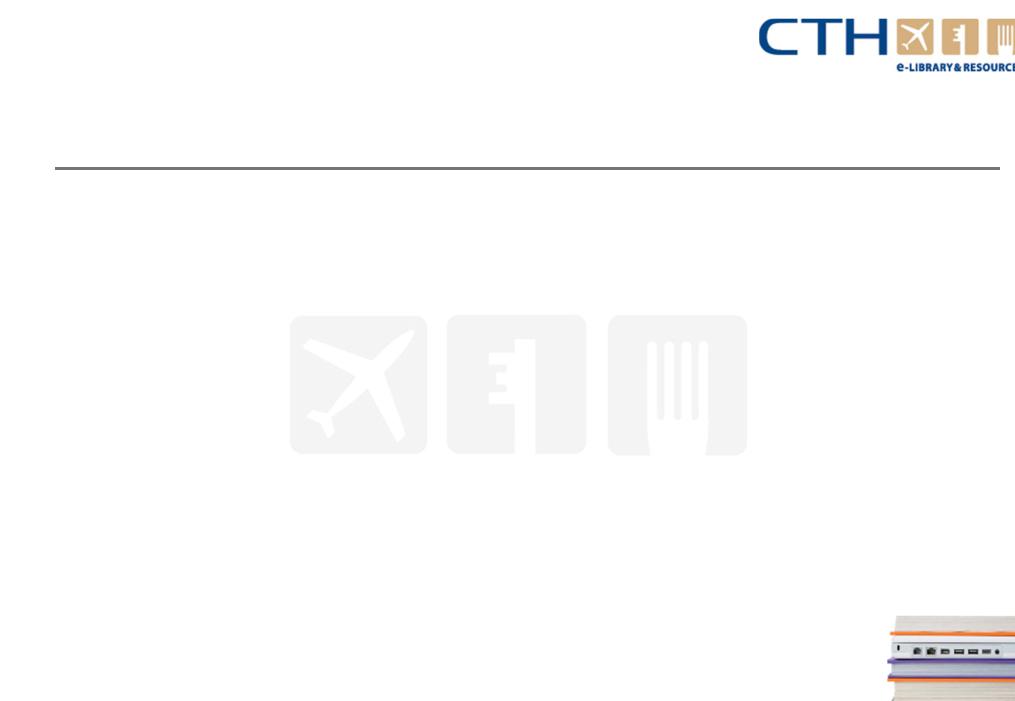
Chapter 4 – Check-out procedures
Preparing and presenting guest bills
2.7 Handling account queries
●Authorisation from a manager may be required to offer a refund or reduction, or to write-off disputed charges. It may also be advisable to get confirmation from the guest that this has been corrected and accepted, in case of follow-up disputes. This can be done by getting both guest and manager to sign an Adjustment or Allowance slip, attached to the hotel's copy of the final bill.
●Both the hotel's and the guest's copy of the bill should be altered to show any adjustment. In a computerised system, the billing details can simply be amended to show the adjustment and the bill re-printed. In a manual system, a hand-written correction may be made and countersigned.
●Any adjustments must be recorded in the guest accounts (e.g.. the tabular ledger or computer system) as 'adjustments', 'allowances' or 'refunds' - so that at the end of the day, the recorded payments received will still tally with the recorded amounts due.
This is just procedure and record-keeping: a positive attitude will make all the difference in whether this
satisfies the departing guest or not...
www.cthresources.com |
Page 230 |
|
www.cthawards.com |
